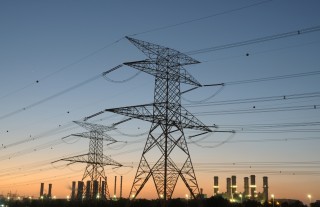In line with the federal government’s strategy on electrifying rural communities, Nigeria moves to actualize equitable access to electricity through its nationwide initiative, Nigeria Electrification Project (NEP) which targets about 500,000 people and 105,0000 households including micro, small and medium enterprises. For the project, the Federal Executive Council (FEC) on April 17 approved the request to obtain a loan of $200 million.
The approved loan facility would come from two multinational institutions, the African Development Bank (AfDB) will provide $150 million while $50 million will come from the African Grow Together. With the funds, the country hopes that maximum power would be generated at 76.5 megawatts (MW) installed generating capacity, part of which is 68,000 MW of solar. In addition, eight universities and about 20,000 SMEs across different communities in the nation to benefit from the project.
The NEP has four components – first is solar hybrid mini-grid for rural economic development, second is productive appliances equipment for up-grid communities, the third is energising education and the fourth component is institutional capacity building. Accordingly, the project will be implemented by the national Rural Electrification Agency (REA).
The proposed 2019 budget allocates a total of $48.6 million to the National Rural Electrification Agency in the 2019 fiscal year, which is expected to fund 42 rural electrification projects across the country. Presently, about 60 percent of the country’s populace has no access to electricity while others lack steady power supply. Furthermore, there is a problem of transmission capacity as the current transmission grid cannot carry more than 5,500 MW.
These problems prevail despite previous funding supports and investments in the country’s power sector. But all of this could be addressed by NEP, which focuses on improving access to electricity with a target on households, micro-, small-, and medium-sized enterprises (MSMEs), students, faculty, staff, and patients at federal universities and teaching hospitals throughout Nigeria (estimated at over 2.5 million people).
Approved in November 2018, NEP’s focus is on off-grid expansion. Other than receiving funding support as is the case with similar initiatives, adequate regulations and effective coordination is also required to achieve the objectives of this project. In terms of impact, figures from reports would reveal the effect of the initiative on its beneficiaries, all of which is expected to be progressive. For instance, the current 60 percent population that lacks access to electricity is expected to reduce once the project is implemented.








